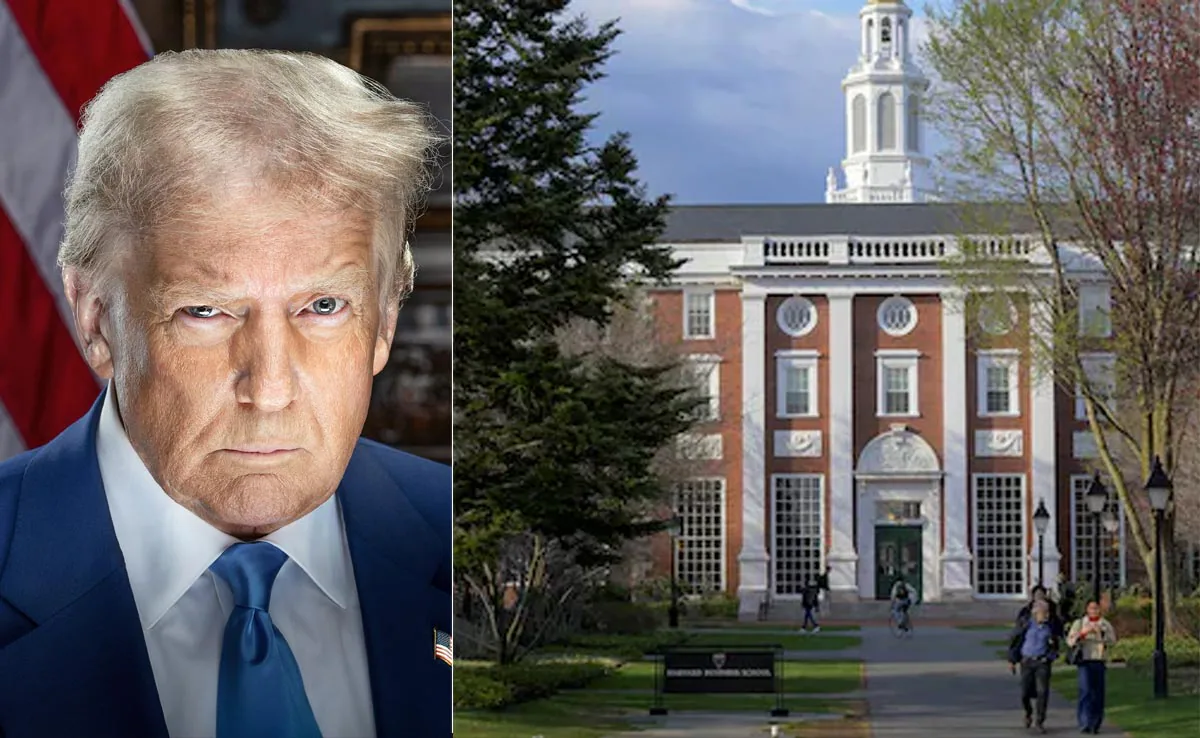In a Bold Shift, Trump Administration Severs Financial Links with Harvard University
The Trump administration has taken a decisive step to sever its financial relationship with Harvard University, announcing plans to cancel $100 million in federal contracts. This move is part of a broader initiative urging federal agencies to seek alternative vendors instead. The directive comes amidst ongoing tensions between the administration and the elite Ivy League institution, signaling a turning point in their longstanding relationship.
The announcement, delivered via a letter to federal agencies, emphasized that agencies must actively explore other options for services that Harvard had previously provided. “Going forward, we also encourage your agency to seek alternative vendors for future services where you had previously considered Harvard,” the correspondence stated, highlighting the administration’s dissatisfaction with the university’s compliance with federal demands. Agencies are mandated to respond with a list of relevant contract cancellations by June 6th.
The escalating conflict reached new heights earlier in the week when the Department of Homeland Security barred Harvard from enrolling international students, further straining the relationship. This unprecedented action was labeled by Harvard officials as an “unlawful and unwarranted action,” and they expressed concerns over its potentially devastating effects on thousands of students and scholars seeking education in the United States.
As per the report by The New York Times, the letter to Harvard detailed that to regain their Student and Exchange Visitor Program certification for the forthcoming academic year, the university must provide requested information within a strict timeframe of 72 hours. The administration’s insistence on this information reflects heightened scrutiny of the university’s handling of international student enrollment.
President Donald Trump took to social media to express his frustrations regarding the university’s compliance. On Monday, he tweeted, “We are still waiting for the Foreign Student Lists from Harvard so that we can determine, after a ridiculous expenditure of BILLIONS OF DOLLARS, how many radicalized lunatics, troublemakers all, should not be let back into our Country.” This insinuation of potential radicalization among international students illuminates the administration’s tough stance on immigration and foreign student policies.
In response to the perceived delays by Harvard, the Department of Homeland Security moved swiftly to revoke the institution’s ability to enroll foreign students. This decision, however, faced immediate legal challenges, leading to a temporary injunction issued by an Obama-appointed federal judge. Critics argue that these tactics represent a retaliatory measure against Harvard for not adhering to the administration’s policy demands.
The situation escalated further as President Trump threatened to redirect approximately $3 billion in federal grants away from Harvard to trade schools. This came on the heels of the administration’s freeze of $2.2 billion in grants and $60 million in contracts following Harvard’s rejection of the government’s demands. In a poignant message to the Harvard community, President Alan Garber reaffirmed the university’s commitment to independence, stating, “The University will not surrender its independence or relinquish its constitutional rights.” He stressed the importance of academic freedom and the necessity for universities to operate without political interference.
Moreover, discussions surrounding Harvard’s financial ties with the federal government have intensified in the wake of the COVID-19 pandemic, as universities grapple with funding and operational adjustments. The abrupt termination of contracts and federal support could have severe implications for Harvard’s financial standing and its ability to support its diverse student body.
The implications of the Trump administration’s actions extend beyond Harvard, as they may set a precedent for other universities facing similar scrutiny. Educational institutions across the country are closely monitoring the situation, particularly as it relates to international student enrollments, academic freedom, and federal funding.
The administration’s stance raises significant questions about the future of public-private partnerships in higher education, particularly for prestigious institutions with global reputations. As agencies initiate the process to find alternate vendors, the competitive landscape for federally funded educational programs is about to shift dramatically.
In light of these developments, it remains critical for educational stakeholders, policymakers, and the public to engage in meaningful discussions on the impact of political decisions on higher education. The ongoing tension between the administration and academic institutions highlights deep-seated ideological divides regarding immigration, education, and institutional autonomy.
The future dynamics between the Trump administration and higher education institutions will continue to be influenced by these ongoing conflicts. The actions taken against Harvard University may provoke reactions from other universities, possibly leading to further resistance against federal funding when conditions and requirements become too stringent or politically motivated.
As this narrative unfolds, it is essential to keep a close watch on the legal implications, legislative responses, and public discourse surrounding higher education in America. The implications of the Trump administration’s actions reveal a broader trend toward politicization of educational institutions and pose significant challenges for universities to navigate moving forward.
The relationship between the government and educational institutions is evolving, and the decisions made today will shape the landscape for years to come. The balancing act of maintaining academic freedom while navigating political pressures will challenge many institutions, including Harvard, as they strive to uphold their educational missions amidst an increasingly complex regulatory environment.
DISCLAIMER
We have taken every measure to ensure that the information in this article and on our social media platforms is accurate, verified, and obtained from reliable sources. For feedback or complaints, please contact us at info@hamslive.com.


